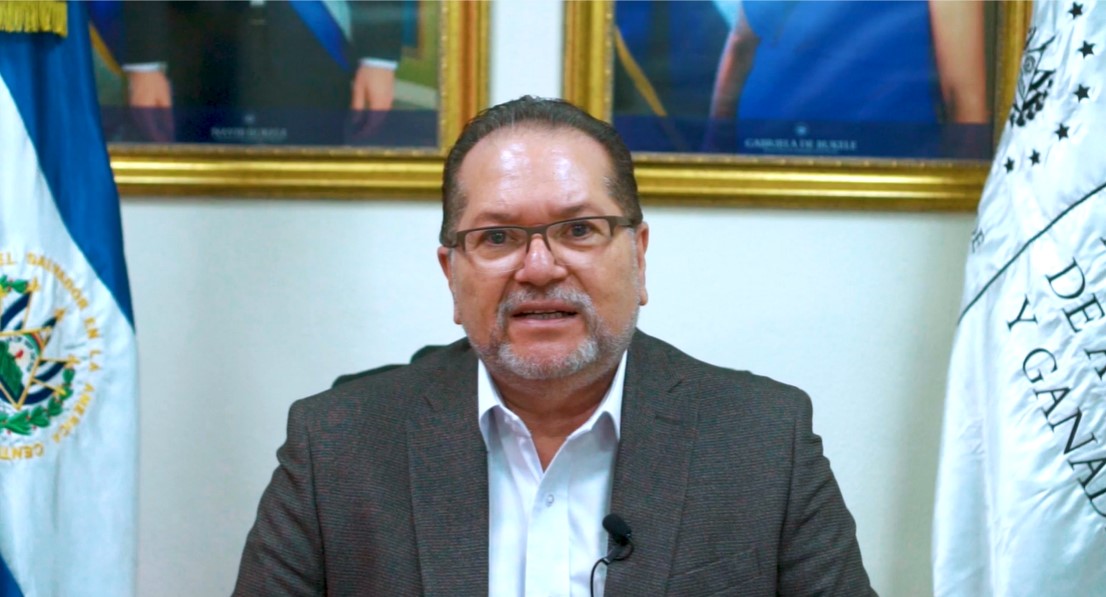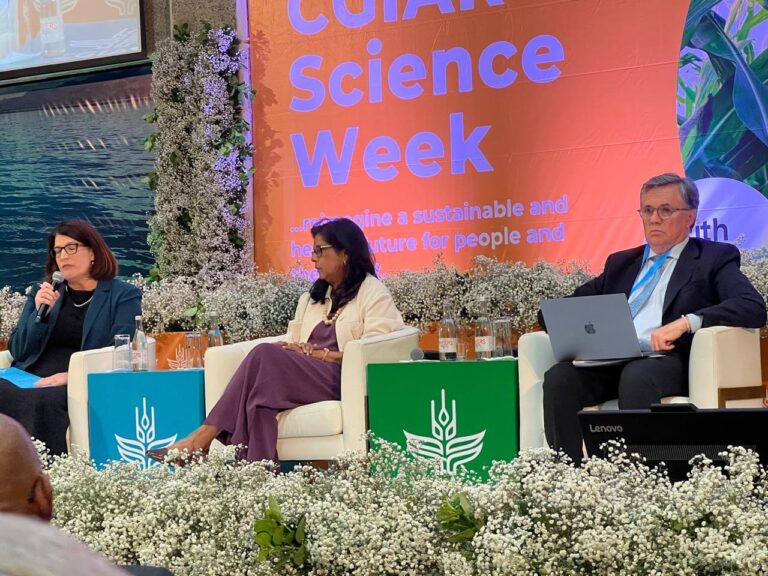In the Dry Corridor, where most of the population depends on agriculture and especially on the production of basic grains, this phenomenon severely impacts food production.

San Jose, 29 September 2023 (IICA) – The Minister of Agriculture and Livestock of El Salvador and pro tempore President of the Central American Agricultural Council (CAC), Óscar Enrique Guardado Calderón, underscored the importance of discussing regional solutions to food insecurity in the Central American Dry Corridor at the upcoming meeting of the region’s senior agricultural officials, to be held from 3 to 5 October in Costa Rica.
On those dates, the Inter-American Institute for Cooperation on Agriculture (IICA) will be hosting the Conference of Ministers of Agriculture of the Americas 2023.
In a video message, the Minister called for strengthening the role of agriculture in the Americas as a guarantor of global food security and sustainability, as the region grapples with the impact of the El Niño phenomenon and its 2023-2024 cycle.
In the Dry Corridor, where most of the population depends on agriculture and especially on the production of basic grains, this phenomenon severely impacts food production.
“We need to incorporate the issue of water resources into the region’s agricultural agenda, and develop innovative policies to facilitate the adoption of technologies for the integrated management of water for agriculture, and for the population as a whole”, added Guardado Calderón.
The Central American Dry Corridor is a tropical dry forest region, 156 million square kilometers in area, stretching from the west coast of Chiapas (Mexico) to the west coast of Panama. The close to 30 million inhabitants of this region are beset with social problems that are intrinsically linked to extreme climate phenomena.
Guatemala, El Salvador, Honduras and Nicaragua are the countries most affected by the onslaught of climate change, reporting a decline in rainfall of between 30 to 40 percent during the El Niño phenomenon, and in which tropical storms devastate production activities, while integrated policies to efficiently manage limited water resources are deficient or non-existent.
Agriculture plays a critical role in this region, employing up to 42 percent of the population in the food production chain. More than 40 percent of young people are also involved in agricultural ventures. However, the weather conditions, poor management of natural resources, high unemployment and low levels of schooling, are contributing factors to a situation in which 1 in 3 people have access to only one meal per day.
The Inter-American Board of Agriculture (IABA), IICA’s highest governing body, will also meet within the framework of the Conference of Ministers of Agriculture of the Americas 2023. The IABA is made up of the ministers and secretaries of Agriculture of 34 countries of the Americas.
The IABA meets every two years to discuss the main challenges facing agriculture in the Americas and to instruct IICA on the actions needed to support the efforts of the countries of the region to improve conditions in agriculture.
More information:
Institutional Communication Division.
comunicacion.institucional@iica.int











